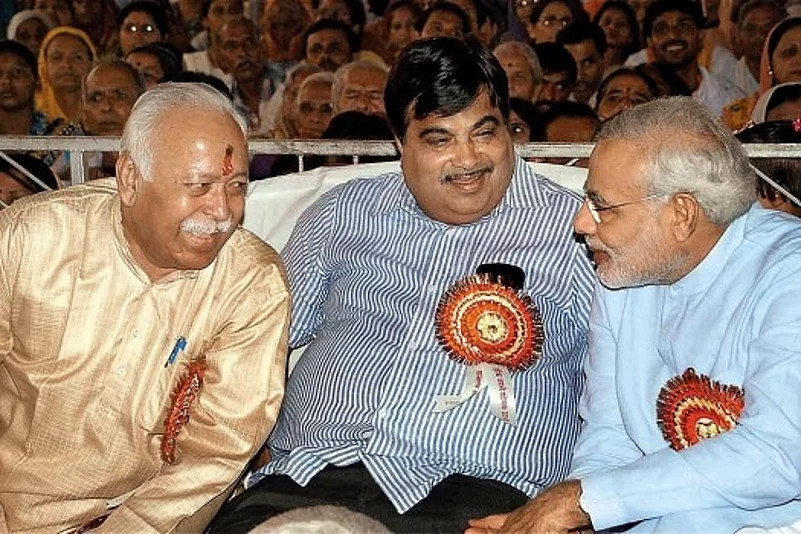In June 2013, when Narendra Modi was named BJP’s campaign chief for Lok Sabha elections at the Goa National Executive, reluctant RSS gave its tacit approval. The decision, based on the groundswell of cadre support and absence of a viable alternative, set the ball rolling for Modi to be declared the prime ministerial candidate who later led the party to an unprecedented victory.
In the past three years, though the ties between the Modi-led government and the Sangh have seen turbulence over appointments to institutions, foreign direct investment plans that clashed with RSS’ protectionist ideals and introducing genetically modified (GM) crops, the two seem to have learnt how not to step on the other’s toe in a tango.
Advertisement
In the first two years, RSS was uncomfortable about the government’s foreign policy, which was precipitated by Modi’s unscheduled stop at Lahore to wish Pakistan counterpart Nawaz Sharif on his 66thbirthday.
It was the first visit by an Indian Prime Minister in a decade after Atal Bihari Vajpayee’s visit in 2005.
“But the RSS decided not to interfere at the time and thought it better to let the government handle things,” reveals an RSS functionary.
“In hindsight, maybe it was a good move by Modi since it exposed Pakistan as it did not respond to the friendly gesture,” the functionary said.
Advertisement
Pakistan, instead, backed a terrorist attack on Uri air base that killed 18 personnel. The surgical strikes subsequently carried out by Indian army were appreciated by the RSS.
The RSS is now actively working as a force-multiplier for the Modi government.
“PM Modi’s New India vision has the Sangh really excited. Sarsanghchalak Mohan Bhagwat is taking a keen interest in it and has been interacting with people in the government and policy experts to generate ideas for New India,” a Sangh insider told Outlook.
The BJP’s sweeping victory in Uttar Pradesh and other states, and growing popularity of Modi have convinced the RSS that the two can work as a team and not adversaries.
The relationship between RSS and earlier NDA government led by Atal Bihari Vajpayee was fraught with poor communication between the two.
“Both, the BJP and the Sangh, have seen a generational shift since then. The Sangh is not breathing down the government’s neck and the government too appears a little more accommodative,” the Sangh leader explains.
A BJP minister says that the government is trying to be flexible in appointments in certain ministries and institutions as long as there is no constant interference in day-to-day functioning by the Sangh and its affiliates.
The RSS appears to be happy at the way the Modi government is functioning. “The government is doing what the RSS would like it to do,” the RSS leader says. The Sangh is satisfied with the Modi government’s handling of tripla talaq and reservation issues, and how the party under Amit Shah is expanding its footprints across India.
Advertisement
“The RSS has realized that its vision of Hindu Rashtra has the best chance of being fulfilled only under Modi. It is happy that the party is expanding into the north-eastern states and moving towards south too. As of now the Sangh has no cause to complain,” says a senior BJP leader.
Surprisingly, even Congress is grudgingly giving credit to RSS and its cadres in BJP’s victories in UP and other states. And for all the criticism that it has thrown on the RSS, the party now wants to emulate its approach to reach the grassroots.




















